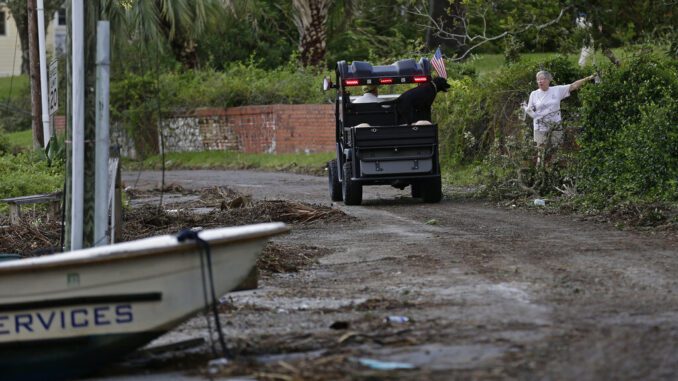
WARSAW — A Fayetteville attorney has secured $32 million in federal compensation for Duplin County farmers following the resolution of a lawsuit involving crop insurance claims in the wake of 2020’s Hurricane Isaias.
Scott Flowers of Hutchens Law Firm challenged the methodology employed by the federal Risk Management Agency (RMA) during the August 2020 hurricane, arguing that the formula used to estimate damage based on storm strength inaccurately excluded Duplin County from the appropriate classification that would have triggered damage coverage under the federal crop insurance policies.
As Hurricane Isaias approached the southeast U.S. in August 2020, residents along the entire eastern seaboard were told to prepare for a significant storm surge, intense flash flooding and tornadoes. At one point the National Weather Service had issued tropical storm warnings extending over 1,000 miles, from Florida to Maine.
The hurricane, which had already killed two people in the Caribbean, wobbled past Florida, weakening into a tropical storm before being upgraded again into a Category 1 just before making landfall at Ocean Isle Beach, North Carolina with maximum sustained winds of 85 mph. Isaias was again downgraded into a tropical storm after it crossed into Duplin County, which, according to Flowers and his team, turned out to be the $32 million data point.
Flowers explained that the National Oceanic and Atmospheric Administration (NOAA) publishes a data point for hurricanes every three hours. During the time in question in the early morning hours of August 4, 2020, NOAA’s first published data point downgrading Isais into a tropical storm occurred once the storm was located within Duplin County. Flowers argued that according to the farmers’ crop insurance endorsements, this classification should have compelled the government to cover farmers’ losses to storm damage in Duplin and adjacent counties.
However, the RMA methodology used during Isaias called “interpolation,” which aggregates data points to create storm surge inundation maps to assist in damage assessments, failed to include Duplin County within its qualifying parameters.
As Flowers delved into the event, this was found to be the definitive tool used by authorities to justify the denial of his clients’ crop insurance claims, even though their insurance policies had no language specifying this formula, not to mention the contradiction of NOAA’s own data points published in real time during the event.
These discrepancies were ultimately acknowledged by the USDA, which oversees the crop insurance program, and the government agreed to cover losses within the disputed areas.
Flowers’ represented two clients in the matter, brother-in-law Bradley Frederick and his father, Leroy Frederick, both farmers in the Duplin County town of Warsaw, but Flowers said that many more farmers — possibly hundreds — are expected to benefit from compensation in Duplin and surrounding counties.
Regarding the RMA assessment methodology, Flowers said that the language within federal crop insurance policies has been updated and clarified to specify the use of the interpolation formula. This is a significant clarification with both local and nationwide implications, as around 90% of all crop acreage in the U.S. is insured under a federal crop policy.
N.C. Agriculture Commissioner Steve Troxler applauded the decision and the ultimate response to farmers’ losses.
“With the court ruling in favor of farmers, I am pleased to see the insurance program will be used as intended. It’s a good outcome for our farmers who have really bought into this program and were counting on it to help mitigate their hurricane losses from wind damage. We will continue to work with USDA to ensure farmers concerns are heard and programs meet their needs,” Troxler said.
Flowers said that the farming community’s support and gratitude has been tremendous, and that his family, along with other area farmers look forward to celebrating this month at the Mad Boar restaurant in Wallace, just inside the Duplin County line.


